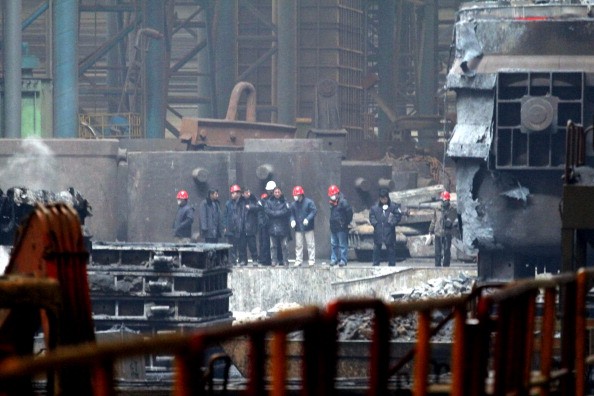Liaoning Province, once an industrial hub fought over by Russia and Japan, is now a place with zombie companies, mired in recession and debt.
A report by Bloomberg said that Liaoning's situation shows what needs to be done in the country's bond market. While financiers are willing to restructure the debts of insolvent companies, local authorities are reluctant to allow them, the report said.
In addition, bankers said that Liaoning policy makers prefer to wait for the central government's action rather than allow other firms to compete with zombie companies or allow investors to make long-term investments to help them recover.
"Liaoning's government and the people there dare not or would not like to solve its problems via the market," Shen Meng, Beijing-based president of Chanson & Company, a private investment bank, said. "They're still waiting for the central government's supportive policies. That's the biggest stumbling block."
An unnamed official from the provincial government, however, told Bloomberg that their departments used market-based rules in dealing with non-performing assets.
In Sept. 2015, Premier Li Keqiang presented two objectives for Liaoning to follow. One is aimed at stabilizing growth and supporting jobs while the other was to increase economic efficiency.
But at the end of that year, an IMF paper said that the province had about 830 zombie companies, bankrupt enterprises that operate only on government subsidies and bank loans.
Official data from the province showed that it posted only a 2.2 percent gross domestic product in the first nine months of 2016, following closure of steel, coal and iron production.
According to Bloomberg, half of the corporate bond defaults in the country in the last 12 months were in Liaoning. It is also the fifth among all provinces with 125 enterprises filing for bankruptcy, according to an official website.
Troubled SOEs
Bankers said that private investors also lose their interest on troubled state-owned enterprises (SOEs), though they still have profitable assets, because they are highly priced and their financial records are in shambles.
"A lot of the state firms are actually integral to the fiscal survivability of Liaoning Province--so they can't say to a Wilbur Ross of China that we will accept 10 cents on the dollar," Andrew Collier, managing director of Orient Capital Research, said. "If they do that, that means the entire economy is bankrupt."
Collier also cited the efforts of Liaoning authorities to keep the operations of Dongbei Special Steel Group, a state-owned enterprise which has defaulted on its bonds at least nine times.
With no intention to close its operation, the company filed for bankruptcy last year and has a plan for 7.2 billion yuan ($1 billion) of notes, its October filing said.
Another company beset with problems is Dalian Machine Tool Group Corp, as pointed out by Bloomberg Intelligence analyst Nikkie Lu. After a series of defaults on bonds that began in November, the company has no restructuring plan yet or a debt-resolution strategy.
"Some assets in Liaoning remain profitable for asset management companies or distressed debt funds," Shen, the private investment banker, said. "The point is the pricing."
Private investors are also discouraged from participation in addressing non-performing loans (NPLs) because of the presence of the four state asset managers, the report said.
"There are definitely tremendous opportunities within the distressed/NPLs space in China, Liaoning in particular," Kevin Wu, a portfolio manager at Pinpoint Asset Management Ltd. in Hong Kong, said. But "some market participants (including ourselves) decided to stay cautious when it comes to credit from Liaoning Province," he added.
According Wu, the problem will persist if government will continue to guarantee assistance.
"Asset markets will continue to be distorted should the perceived government implicit guarantee be here to stay," Wu said.



























